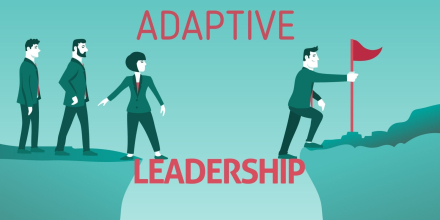Exercise of adaptive leadership by senior officials in the Australian public service as a Westminster-derived institution

Event details
PhD Seminar
Date & time
Venue
Speaker
Contacts
Abstract
Framed by tensions between Westminster conventions and traditions, and public servants’ values, craft obligations and felt responsibility, this research aims to explore how Senior Executive Service (SES) officers in the Australian federal government make use of a specific leadership model, adaptive leadership (AL), in conceiving of and performing their roles. The kernel for the study is that AL, adopted by the Australian Public Service Commission in 2012 to develop its SES cadre, evinces particular entrepreneurial characteristics which may not be a natural fit in the Australian Public Service (APS) as a derived Westminster institution with inherited conventions, traditions and understandings.
While traditional formulations posit that Westminster public services operate along dichotomous responsibility-accountability conventions and principal-agency relationships, these accounts fail to sufficiently acquit the role of the public service in an increasingly complex environment. Conceptually, this study explores the role of the public service as an institution with a form of independence adapting to changing responsibility and dispersed accountability, including an increased relationship between senior officials direct to the parliament.
As a result, the study offers several insights relevant to existing conceptual understandings of the role of the public service. These include: joint enterprise with politicians – a partnership – particularly during policy reform; development of the notion of public service ‘independence’; and a felt responsibility by senior officials separate to that through ministers to the parliament. The resultant conceptual frame is what I coin ‘bureaucratic responsibility’: officials’ espoused and actual agency to match their increased accountability as ministers have vacated the field. Empirically, the study examines subsidiary questions about how, and in what circumstances, public officials exercise AL, and whether they do so in modified forms depending upon organisational setting. Emerging from this exploration was a distinct set of leadership conditions – a ‘native’ leadership craft – used by SES officers to make sense of and navigate their environment: a “habit of discernment” to bridge knowing the right thing to do and acting to do it.
On the prevalence of AL, the study found AL it to operate across the APS, both among agency types and within SES levels. For an approach in which “hundreds” of SES officers have been developed, this is perhaps unsurprising. What, though, is more surprising is the patchy nature of the model’s prevalence. While some AL features were found to operate remarkably strongly, others were more muted and implicit. Comparatively, across organisational types, the model was found to operate least robustly in policy settings and more so in operating contexts, particularly regulatory environments. These findings suggest that where AL’s features are consistent with, or complementary to, Westminster-informed leadership mores, they operate more freely; but where they are inconsistent, AL is readily modified or even dislodged.
To perform this study, the research employs a mixed methods approach involving interviews with dozens of elite (political and administrative) actors, APS SES officers and observer-stakeholders, grounded in case studies to observe the possible situational variation of AL. It also draws on a large bank of primary and secondary documentary material—speeches, press releases, parliamentary debates, reports, guidelines, monographs and journal articles.
This research is relevant conceptually and timely in practice. Australia – along with other nations – faces a set of difficult challenges ahead, not least managing the social and economic aftermath of historic pandemic crisis, extant international strategic and economic pressures, and domestic policy challenges. Effective leadership by senior officials will therefore be critical to navigate these pressures. In light of the research findings, the study proposes changes in SES leadership development policy and practices to support senior officials navigate their evolving environment.
Biography
I am a former senior public policy executive with over 20 years’ experience working in Australian Federal and state governments. Since July 2018, I have been enrolled (part-time/full-time) as a PhD candidate at the ANU researching the exercise of adaptive leadership in the Australian Public Service. My research is supervised by Emeritus Professor John Wanna (SPIR), Professor Paul ’t Hart (Utrecht) and chaired by Associate Professor Michael Di Francesco (Crawford).
Prior to this, I was Assistant Secretary of the Department of the Prime Minister and Cabinet working in whole-of-government governance and national social policy. I have worked in a number of Commonwealth and NSW state government departments in various policy development, program implementation and research roles. My first public service job was as a court clerk.
I hold a Bachelor of Economics with Honours by research from the University of Sydney, a graduate Bachelor of Laws (JD equivalent) from UNSW and a Master of Management from ANU.
Supervisors: - Emeritus Professor John Wanna, ANU SPIR. - Professor Paul ‘t Hart, Utrecht University, Netherlands. - Chair and Associate Professor Michael Di Francesco.
Updated: 19 October 2024/Responsible Officer: Crawford Engagement/Page Contact: CAP Web Team











